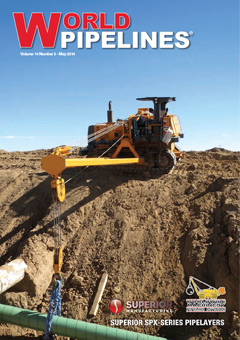Editorial comment
Pushing backIn an op-ed piece recently, John Westwood of Douglas-Westwood London, said “there is a major gap between the realities of oil and gas and the public understanding of its fundamental importance to society”. He points out that “oilman, like banker, has become a dirty word” and that “there is little public realisation that the oil companies do not want to drill in the arctic or ultra-deep water or frac thousands of wells all of which are very high cost operations. The only reason this is happening is that there is nowhere else left to go to get the fuels we all depend on.”
Register for free »
Get started now for absolutely FREE, no credit card required.
He goes on to appeal for an industry-wide, pro-oil “association to collectively address the educational requirement and lead stakeholder engagement across the energy sector”. He stresses the importance of taking a stand against the highly-organised PR power of anti-oil protagonists and seems to suggest that an equally hard shove in the opposite direction may do the trick in winning the public around.
The problem is, the oil and gas industry is already seen as heavy-handed and powerful; I think that the public perception is that it already dishes out plenty of propaganda to cover what many see as its ‘dirty polluting ways’. The nature of public opinion means that people expect mishaps and cover-ups; they don’t automatically assume a lucrative oil company is working to the letter of the law.
So how can we ‘change perception’? I have always been taught that you cannot control another person’s thoughts and actions, and so should concentrate on your own. But seeking approval from a critical third party is not the same as seeking state and national approval for a pipeline project: you can move forward and prosper without one of these but not without the other!This week, Keystone XL pipeline opponents dressed in traditional Indian headdresses and cowboy hats and riding on horses paraded in Washington D.C., as part of a publicised ‘reject and protect week’ in protest against the pipeline extension for delivery of Canadian oilsands to the US.
US President Obama had, in fact, by then already announced that he was pushing back the state department’s decision on KXL – it will likely take place after the November 2014 midterm elections. No doubt President Obama, too, is sensitive to John Westwood’s argument: “we live in an age of instant information which lacks analysis and where headlines are sensationalised to grab attention, not inform”. In this context, a ‘yes’ to KXL without a sea change in public opinion, or at least a quietening of current protests, would be very risky.
Of course, while industry may drag its feet, politicians are never averse to a bit of powerful, organised PR, and this is the key to why the decision on KXL is being shifted back to after the midterms. It is common practice to press pause on controversial issues before an election: see Obamacare’s rollout in the US, or the much-debated third runway at London Heathrow Airport in the UK.
Is the oil and gas industry capable of, in the words of Westwood, educating and leading stakeholder engagement over the next few years so that it presents a more united, positive front against anti-KXL forces going forwards? Is it possible that we might face the US presidential elections in 2016 without a decision having been made on KXL? Might it then become an election in which Obama’s successor happens to succeed or fail based on his (or her...) position on KXL?
I’ll close with a quote from Democratic National Committee Chairwoman Debbie Wasserman Schultz, who said to press recently regarding the latest KXL pushback, “I want to make sure the right decision is arrived at and that the President makes that decision carefully and doesn’t factor politics into his decision, which I don’t think he is.” Industry could certainly learn from this sort of dogged, determined defensiveness.


